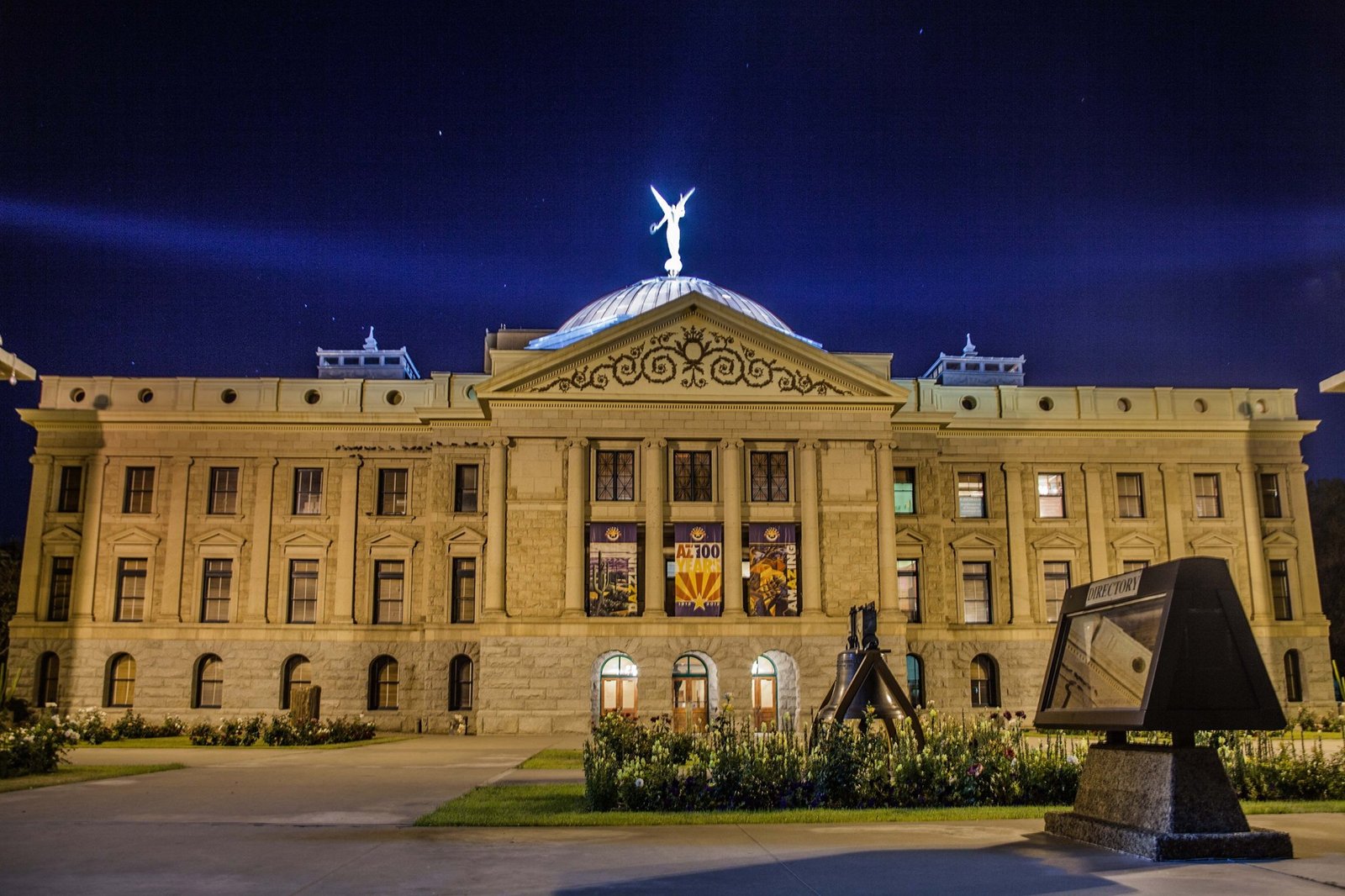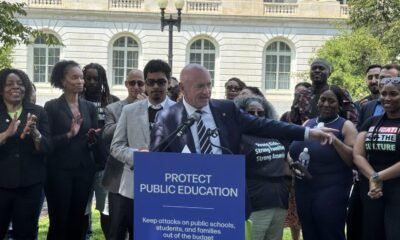2026 budget
Arizona House GOP Pushes Through Budget Amid Democratic Walkout

Republicans in Arizona’s House of Representatives have independently passed a set of state budget bills, managing to do so without Democratic input. The majority party, controlling 33 of the 60 House seats, voted unanimously in favor of 15 budget measures late Friday, following a prolonged wait for debate as Democratic lawmakers departed.
The annual budget process typically involves collaboration among Republican leaders in both the House and Senate alongside Democratic Governor Katie Hobbs. However, this year, House Republicans opted to develop their budget independently, distancing themselves from ongoing negotiations between Hobbs and Senate Republicans.
Legislative Democrats criticized the House Republicans’ approach, labeling it a “farce.” Governor Hobbs dismissed the budget as “dead-on-arrival,” pointing to significant cuts in Medicaid and inadequate funding for K-12 education, among other concerns.
As House Republicans unveiled their budget, Hobbs and Senate Republicans prepared to introduce their alternative proposal following weeks of discussions. House GOP leaders had previously participated in these negotiations but stepped away several weeks ago.
House Appropriations Committee Chairman David Livingston and Rep. Matt Gress, a former budget director under Republican Governor Doug Ducey, spearheaded the House’s budget proposal. Gress defended their methods, emphasizing the necessity of this procedural step to align their budget language with future Senate deliberations.
Despite not collaborating with Senate leaders or Hobbs, Gress noted that the House and Senate plans shared significant similarities, although he conceded that the House’s proposal adopted a more conservative stance.
The proposed $17.3 billion budget includes a 5% pay raise for Department of Public Safety and correctional officers, along with $94 million earmarked for infrastructure improvements, notably on I-10 and Highway 347. Additionally, it entails a 2.5% tuition reduction for public institutions, followed by a three-year freeze, and continues funding for the Division of Developmental Disabilities and the Parents as Paid Caregivers Program.
Introduced on June 11, the budget proposal underwent last-minute amendments as GOP lawmakers sought to ensure unanimous support within their ranks due to anticipated resistance from Democrats.
A notable amendment to House Bill 2947 aims to grant county recorders greater authority over election funding and oversight. This shift is perceived to favor an ongoing conflict between the Republican-controlled Maricopa Board of Supervisors and Maricopa County Recorder Justin Heap, who has been embroiled in disputes regarding election administration since his tenure began in January.
Heap recently initiated a lawsuit against the board, alleging attempts to monopolize control over election administration. His lawsuit seeks to manage the IT workforce responsible for the voter registration system in Maricopa County.
In response, Supervisor Kate Brophy McGee criticized Heap’s lawsuit as absurd, labelling it an “irresponsible” governance approach. The House’s proposed budget potentially allocates $4 million directly to the Recorder’s Office, effectively bypassing the board’s oversight, mandating the recorder to hire IT staff, and control all related equipment.
Rep. Alex Kolodin, a Scottsdale Republican and member of the Freedom Caucus, endorsed the proposed election oversight measures, emphasizing their importance to the caucus. Kolodin’s past inappropriately intervening in election result challenges raised eyebrows among his peers.
While some Republicans remained dissatisfied with the results, expressing concerns over specific budget allocations, a push for collaboration between the House, Senate, and Hobbs was evident as House Republicans articulated optimism about reaching a budget agreement in the upcoming week.
Gress urged Senate Republicans to utilize the House’s proposal, asserting that the majority of their plan would likely emerge in the final budget product.

















